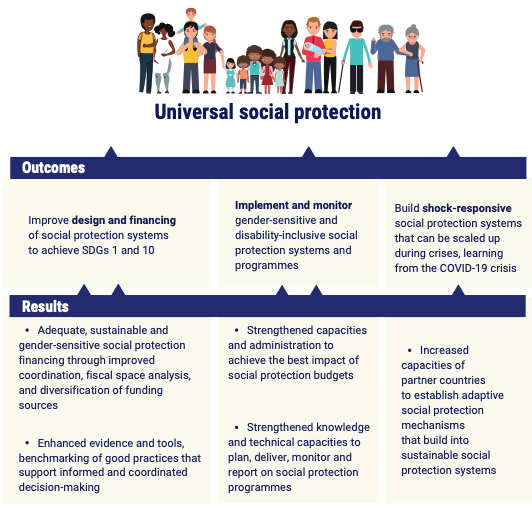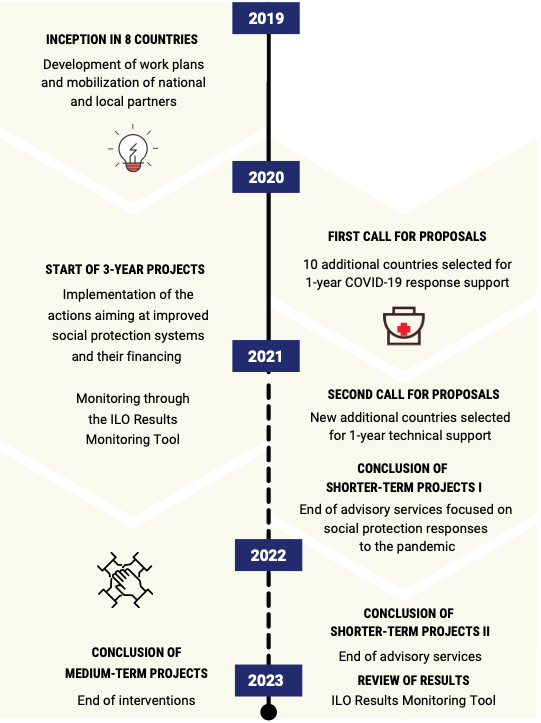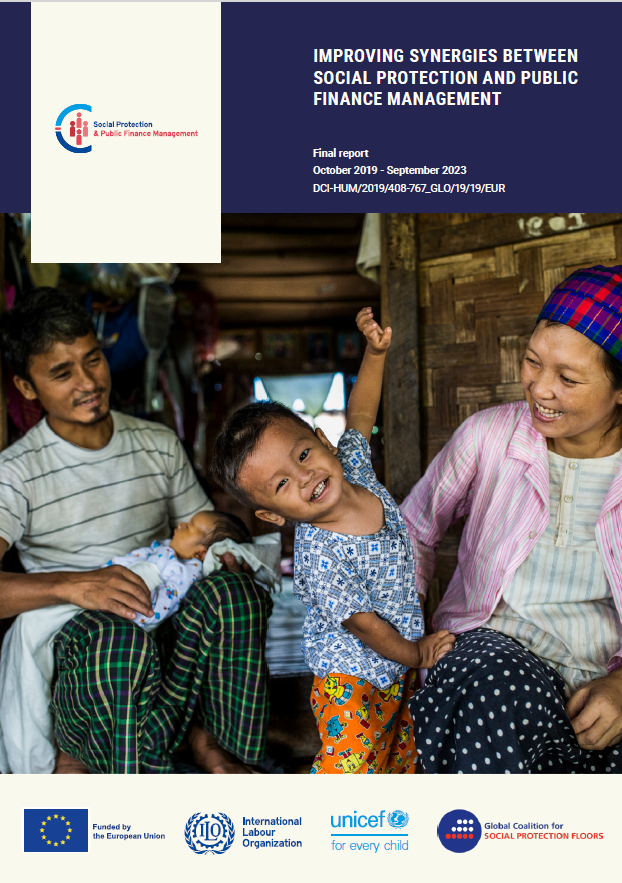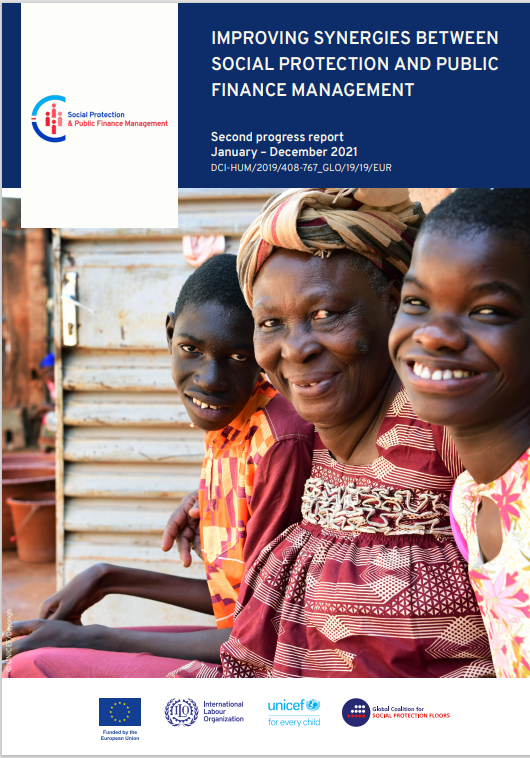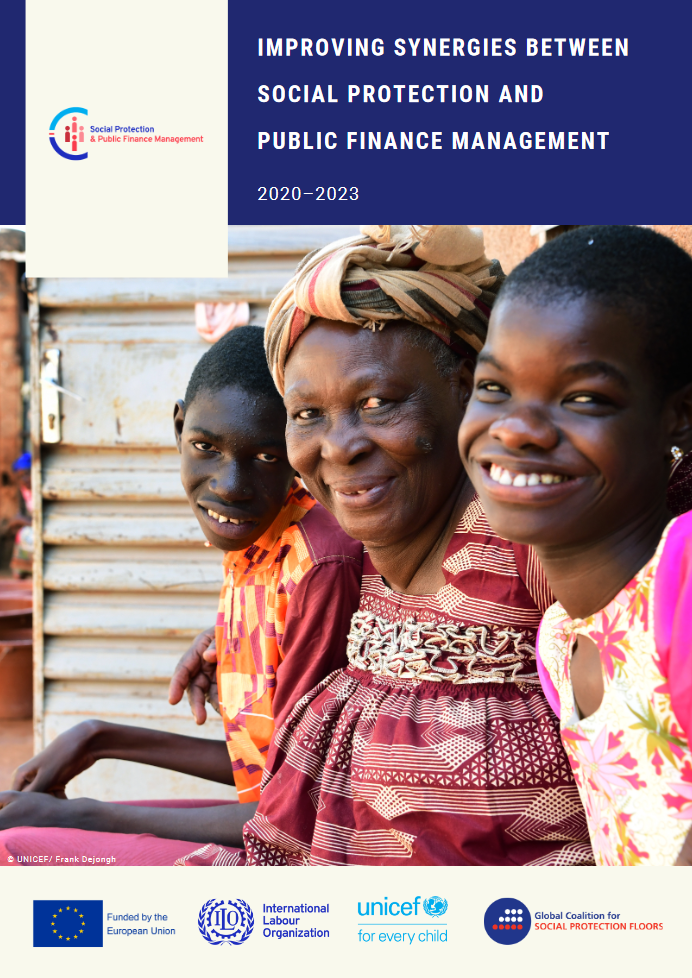What do we do?
The Improving Synergies Between Social Protection and Public Finance Management Programme (SP&PFM) provided medium-term support to multiple countries aiming to strengthen their social protection systems at a national level and ensure sustainable financing.
Funded by the European Union (EU), the initiative was implemented jointly by the International Labour Organization (ILO), UNICEF, and the Global Coalition for Social Protection Floors (GCSPF), in collaboration with national partners and EU Delegations in each country.
SP&PFM aimed to support countries in their efforts towards achieving universal social protection coverage. Activities focused on enhancing the design and implementation of social protection systems, ensuring they were gender-sensitive, disability-inclusive and shock-sensitive, as well as improving their financing through strong public finance management.
The COVID-19 pandemic has reinforced the urgency of developing more resilient and adaptable systems. In response to the health emergency, partner countries worked to scale up their social protection systems.
What is our approach?

SP&PFM strategy for universal and sustainable social protection systems
Gender-responsive social protection
Women still experience significantly lower social protection coverage than men. To strengthen gender-responsive social protection, SP&PFM’s approach was to support evidence generation, based on sex-disaggregated data, and provide technical advice to ensure social protection programmes were better able to play a key role in responding to the specific needs of boys and girls, men and women, while reversing the gender imbalances through social protection laws, programmes, and complementary services. Rather than promoting improvements in gender equality regarding access to social protection in isolation, SP&PFM considered social protection policies in the context of poverty reduction, labour, care, migration and macroeconomic policies, supporting countries to ensure gender-responsiveness at every step in the delivery process.
Disability-inclusive social protection
SP&PFM’s approach to building disability-inclusive social protection systems was grounded in the Convention on the Rights of Persons with Disabilities and the joint statement entitled “Towards inclusive social protection systems supporting the full and effective participation of persons with disabilities”, adopted in 2018. To ensure strong social protection systems that are inclusive of persons living with disabilities, SP&PFM supported countries to ensure effective participation of organizations of persons with disabilities; to strengthen disability data and statistics to assess social protection needs of persons living with disability and to design programmes or specific features of existing programmes that facilitate the inclusion of persons with disabilities, including in the labour market and society; to assess disability-specific costs and higher living costs for people with disabilities; to design inclusive social protection delivery mechanisms; to ensure the inclusion of disability in humanitarian responses, community based rehabilitation and care.
Extending social protection to workers in the informal economy
Aligned with the rights-based approach to social protection, and inspired by the ILO Social Protection Floor Recommendation, 2012 (No.202) and the Transition from Informal to Formal Economy Recommendation, 2015 (No.204), SP&PFM supported countries in extending coverage to all workers, through adapted social insurance and non-contributory schemes. Through a participatory and inclusive social dialogue, SP&PFM supported a national diagnostic of the situation of workers in the informal economy that identified coverage gaps and barriers to coverage for different categories of workers, both women and men; review of regulatory and policy frameworks and practices that focused in particular on identifying and analysing barriers to coverage and identifying options and set priorities for possible reform; development of an integrated policy framework for the extension of coverage and transitions from the informal to the formal economy; implementation and monitoring of policies for extending coverage.
Shock responsive and adaptive social protection
SP&PFM seeked to strengthen national social protection systems, including through the achievement of universal coverage and ensuring they were strong and flexible enough to respond to shocks. SP&PFM’s approach was to support countries to ensure their social protection systems were risk informed, resilient and adaptable to respond to shocks and facilitate transitions through evidence and analysis. The programme aimed at supporting countries by improving the financial and administrative governance of social protection systems, increasing coordination, strengthening the design and implementation of policies and strategies, reinforcing their legal basis, embedding in their design specific guarantees (and triggers in cases of “unforeseen” covariate events), and securing their financial sustainability, including through contingency funds or other emergency support mechanisms.
Social protection and public finance management
SP&PFM’s approach layed on a strong case for investing more and better in social protection, notably through increased and progressive domestic resource mobilization, and improved public finance management, applying a right-based approach and the international social protection standards. The programme facilitated engagement of Ministries of Finance and International Financial Institutions with Ministries in charge of social protection. It supported countries to generate evidence and find and apply options to sustainably finance social protection systems. This included assessing social protection situation and needs (baseline) through national dialogues and conducting estimations of costs of policy reforms; conducting fiscal space analysis and financing options assessments; reviewing and bringing options for funding efficiency, improving the budget cycle; conducting actuarial assessments of social security institutions and extension of coverage; as well as improving good governance, compliance with social security laws related to public finance, transparency and participatory accountability. It also strengthened capacities and created linkages with financing instruments at national and international level. At the core of SP&PFM’s strategy was capacity building and experience sharing at national and decentralized level, participation of large range of stakeholders and application of the international social security standards, for improved synergies between social protection and public finance management.
Social protection coordination and management information systems
SP&PFM aimed to ensure existing schemes were stronger in their design and implementation. It therefore supported improvement of eligibility and delivery arrangements, coordination and implementation (including at sub-national level), management information systems (including registries and social protection management information systems) and data collection, accountability, monitoring and evaluation. The programme recognized that a strong administrative system was critical for an integrated social protection system to ensure strong coordination among different programmes and actors for increased efficiency and enhance trust in the public institutions. The approach also built on the need for improved integrated management information systems (MIS) for social protection to enable programme design, roll-out and monitoring. This included building the capacity at national and local level on planning, monitoring and overall management and service delivery of social protection system; supporting implementation of social protection delivery mechanisms; and supporting digital transformation processes.
What have we achieved?
Who are we?
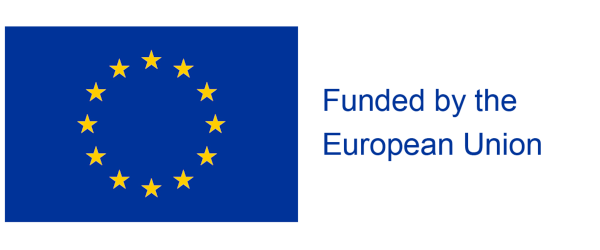
The Member States of the European Union have decided to link together their know-how, resources and destinies. Together, they have built a zone of stability, democracy and sustainable development whilst maintaining cultural diversity, tolerance and individual freedoms. The European Union is committed to sharing its achievements and its values with countries and peoples beyond its borders.
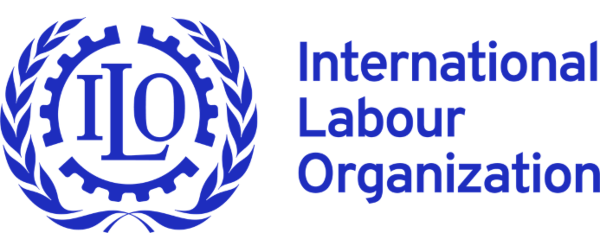
The ILO aims to ensure that it serves the needs of working women and men by bringing together governments, employers and workers to set labour standards, develop policies and devise programmes. The very structure of the ILO, where workers and employers together have an equal voice with governments in its deliberations, shows social dialogue in action. It ensures that the views of the social partners are closely reflected in ILO labour standards, policies and programmes.

UNICEF works in the world’s toughest places to reach the most disadvantaged children and adolescents – and to protect the rights of every child, everywhere. Across more than 190 countries and territories, we do whatever it takes to help children survive, thrive and fulfill their potential, from early childhood through adolescence.

The Global Coalition for Social Protection Floors, a global coalition of trade unions, civil society organisations and individuals, promotes the right of all people residing in a country to social security, regardless of documentation. We promote social protection floors as key instruments to achieve the overarching social goal of the global development agenda.

